“The time we pass on earth is not worth the effort”
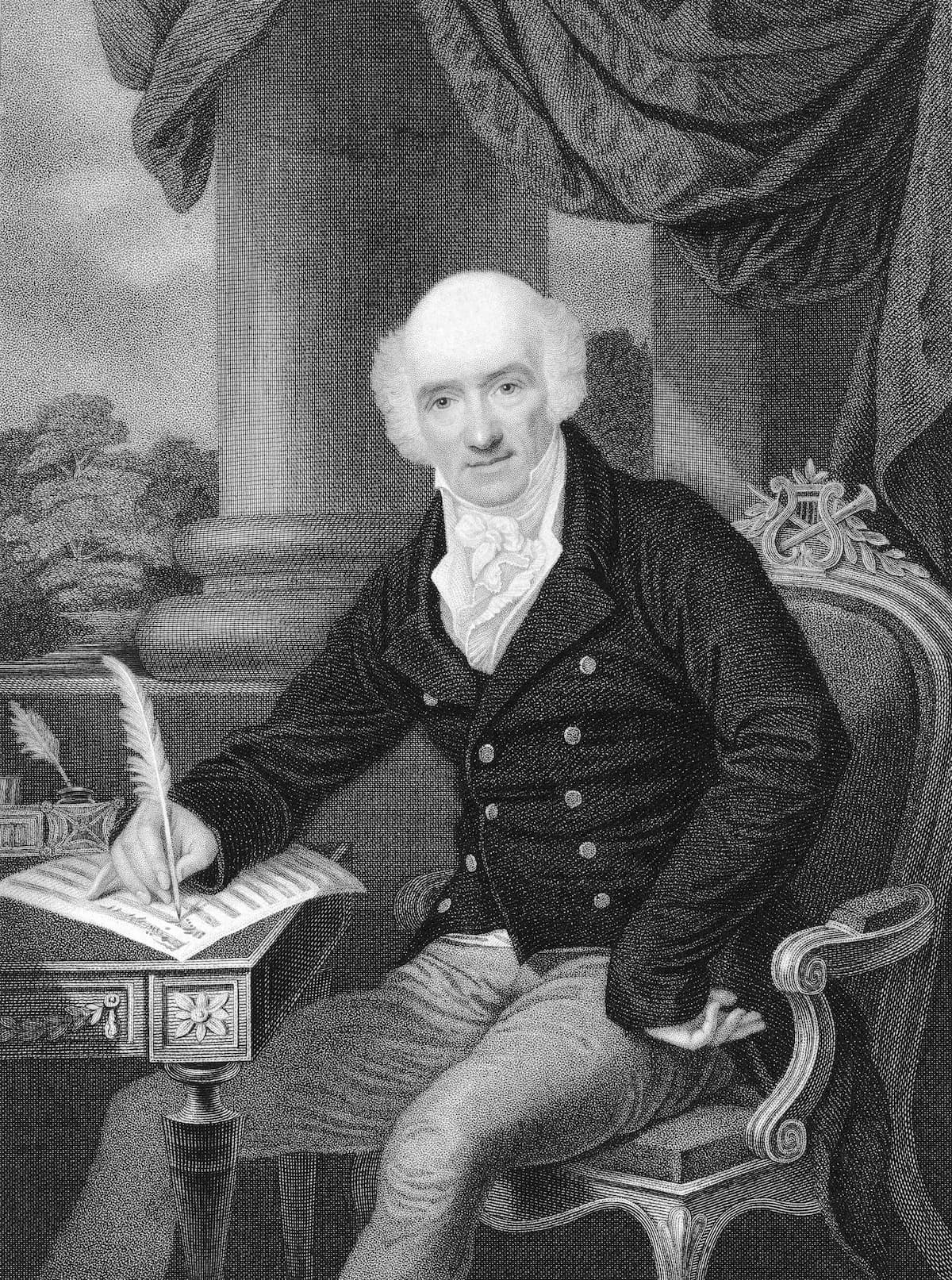
Giovanni Battista Viotti
The Italian violinist and composer Giovanni Battista Viotti (1755-1824), born on 12 May 1755 at Fontanetto da Po in Piedmont, Italy, was probably the most influential violinist between Tartini and Paganini. Viotti represented the last great flowering of the Italian tradition originating with Corelli, and he is considered the founder of the 19th-century French school of violin playing. He knew Haydn and Beethoven, and his compositions are among the finest examples of Classical violin music.
Giovanni Battista Viotti: Concerto No. 22 in A minor, “Moderato”
Early Life
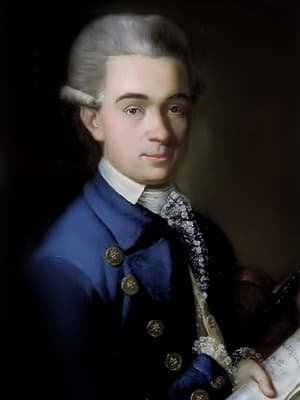
Giovanni Battista Viotti as a young man
The son of a blacksmith and amateur horn player, Viotti showed great musical aptitude at an early age and took violin lessons with a certain Signor Giovanni. After the death of his mother, Viotti was taken to Turin by Marchesa di Voghera, the widow of Prince dal Pozzo della Cisterna. Turin was a sophisticated musical centre and Viotti studied with “Signor Celoniat,” and once Gaetano Pugnani had returned from London in 1769, Viotti became his student.
Pugnani had been appointed first violinist of the King’s Music at the Teatro Regio, and he had been a student of Giovanni Battista Somis, who had studied with Corelli in Rome and possibly also with Vivaldi in Venice. Given such a prominent lineage, Viotti proudly acknowledged Pugnani as his only teacher in later life. By 1775, Viotti became part of the Teatro Regio and he set out on a concert tour with Pugnani that brought him to Switzerland, Dresden, and Berlin. Viotti’s first publication, the Concerto in A now known as No. 3 was offered for sale in 1781.
Giovanni Battista Viotti: Violin Concerto No. 3 in A Major (Uto Ughi, violin; I Solisti Veneti; Claudio Scimone, cond.)
Concert Spirituel
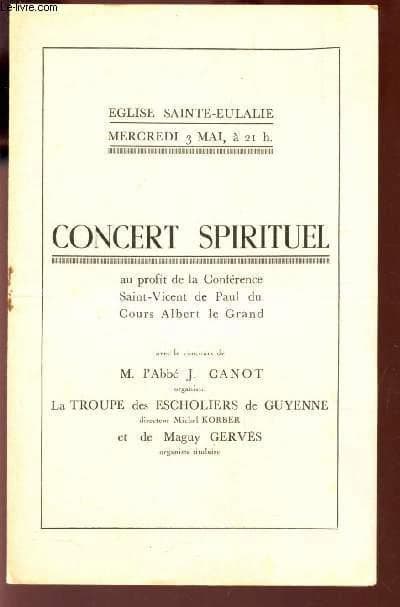
Concert Spirituel
Pugnani and Viotti embarked on a celebrated tour to Warsaw, St Petersburg and Moscow, and an impartial observer suggested that Viotti was playing far better than his teacher. While Pugnani returned to Turin, Viotti headed for Paris and the most important stage of international violinists, Paris’ Concert Spirituel. The stars of the music scene measured their success by the response of the audiences, and Pugnani had performed there in 1754, Lotti in 1764 and Giornovichi in 1773. However, nothing had prepared audiences for the mastery of Viotti’s playing when he first appeared on 17 March 1782.
As François-Joseph Fétis later wrote, Viotti’s arrival in Paris caused such a sensation that it is even difficult to describe it. People had never heard of such perfect talent before. No musician had ever had such a beautiful sound, consistent elegance, such inspiration and variety. The imagination that shone through his concertos added to the delight that his playing stirred in the audiences; Viotti’s violin works were as superior to anything ever written for this instrument as was his technique compared to that of his rivals. As soon as his fine music became known, the French violin school discovered wider horizons.
Giovanni Battista Viotti: Violin Sinfonia Concertante No. 1 in F Major (Roberto Baraldi, violin; Alberto Martini, violin; Accademia I Filarmonici; Aldo Sisillo, cond.)
Marie Antoinette
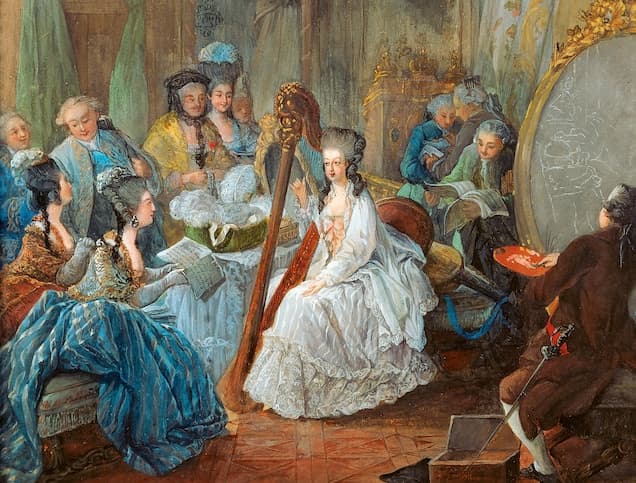
Jean-Baptiste André Gautier-Dagoty: Marie Antoinette playing the harp at the French Court
Given his success on the concert stage, Viotti decided to remain in the French capital and quickly became a favourite of the aristocratic circles and the court. He continued to play publicly for a year and a half, and he also regularly played in Parisian salons throughout the 1780s. He suddenly retired in 1783 and apparently entered the service of Marie Antoinette at Versailles supposedly earning a substantial pension. Viotti turned entrepreneur and impresario when he entered into a collaboration with the Queen’s perruquier Lèonard Autié, the creator of countless exotic and highly extravagant hair styles.
Viotti continued to compose concertos for the violin, and he aroused the interest of the King’s younger brother, Louis-Stanislav-Xavier, Count of Provence. In fact, Viotti convinced him to establish a new performing venue, the Théâtre de Monsieur. First established in the Tuileries, the royal licence was granted for thirty years. Viotti staged French and Italian operas, French comedies and vaudeville, including works by his compatriot Luigi Cherubini. By all accounts, Viotti proved a “vigorous and ambitious administrator and the orchestra he assembled was considered the best in Paris.”
Giovanni Battista Viotti: Quartetto Concertante in A Major, Op. 3, No. 1 (Viotti String Quartet)
Moving to London
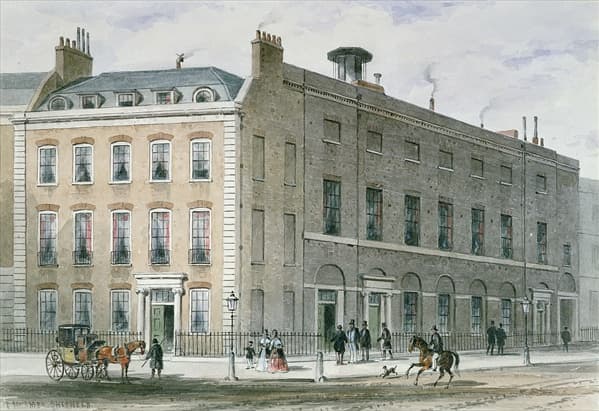
Hanover Square Rooms
Being so tightly linked with the aristocracy became a liability when the French Revolution took a radical turn. By then, Viotti had completed the most successful and influential period of his life, as more than half of his published works, including 19 violin concertos originated during his time in Paris. However, fearing for his personal safety, Viotti moved to London and re-established his playing career at the Johann Peter Salomon “Hanover Square Concerts.” Viotti also continued to organise concerts, and featured as musical director of the new Opera Concerts in 1795, the acting manager of Italian opera at the King’s Theatre, and a leader and director of the orchestra.
As he wrote in his autobiography, he intended to remain in England and hoped to establish himself as a wine merchant. However, as Britain went to war with Revolutionary France, Viotti was suspected of Jacobine activity and fell under suspicion. A newspaper report in 1798 asserts that “the Duke of L… and the Earl of C… have been particularly active in entreating his Majesty to order Viotti out of the kingdom.” And while Viotti protested his innocence, he was forced to depart for exile in Germany and lived in the house of a friend near Hamburg.
Giovanni Battista Viotti: Violin Concerto No. 12 in B-flat Major (Franco Mezzena, violin; Viotti Chamber Orchestra; Luciano Borin, cond.)
Autumn Years
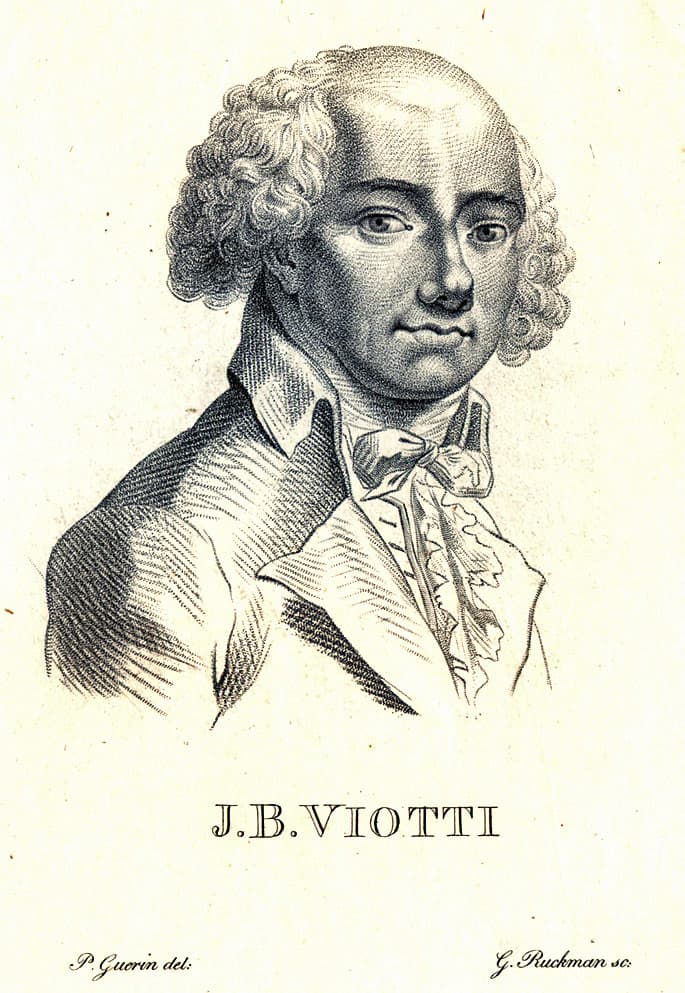
Giovanni Battista Viotti
Viotti returned to London in 1801, and retired from music, devoted his energies to a wine business. He still composed and played in private gatherings, visited old friends in Paris and obtained British citizenship in 1811. He was elected director of the Philharmonic Society, but the failure of his wine business in 1818 left him seriously in debt. He convinced his former Parisian patron to appoint him director of the Opéra and the Théâtre Italien in Paris, and he had some success with Rossini’s opera buffa. However, Viotti was still greatly in debt and he returned to London once more in November 1823. He died on 3 March 1824, disillusioned and dejected.
By all accounts, Viotti was an “attractive and forceful person, and some small measure of his extraordinary influence may be credited to the strength of his personality.” He was able to form lasting friendships with influential people, and he was adored by his students and younger contemporaries. However, during this period of social instability and shifting values in music, Viotti was not satisfied with a career as a composer-virtuoso, a field which harboured his greatest talents.
Giovanni Battista Viotti: Piano Trio in E-flat Major, Op. 15, No. 3 (Trio di Roma)
Performance Style and Legacy
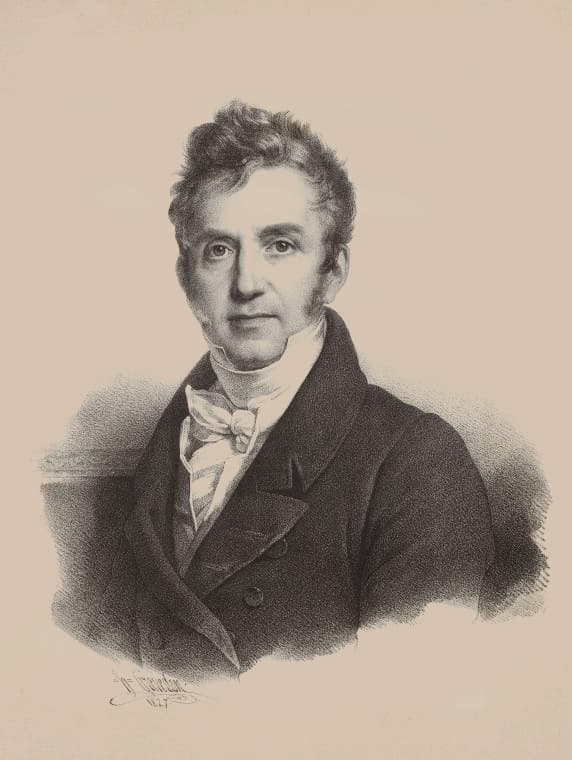
Pierre Rode
Viotti enjoyed a dazzling career as a soloist and was particularly admired for his brilliant technique and talent to “sing” the melodies in the slow movements. As a musical journal wrote, “He plays with a large, strong, full tone in the first movement; the combination of this with a powerful penetrating, singing legato in the second, as the third, variety, charm, shadow and light is brought into play through the greatest diversity of bowing.” Considered one of the masters of instrumental music in Europe, Viotti dominated an entire generation of violinists.
His violin concertos prepared the foundation for the French violin school and were stylistic models much admired and imitated by Pierre Rode (1774-1830), Rodolphe Kreutzer (1766- 1831) and Pierre Baillot (1771-1842). We know that Mozart, Spohr and Beethoven showed interest in Viotti’s works, and Paganini had Viotti compositions in his concert programmes. His 29 violin concertos fully reflect his musical imagination, his power as a performer, and his development as a composer. Viotti’s wide range of stylistic and expressive nuances were appreciated well into the 19th century as his famous Concerto No. 22 in A minor was a favourite of Johannes Brahms.
For more of the best in classical music, sign up for our E-Newsletter
Giovanni Battista Viotti: Violin Concerto No. 22 in A minor (Christian Tetzlaff, violin; Deutsches Symphonie-Orchester Berlin; Paavo Järvi, cond.)



